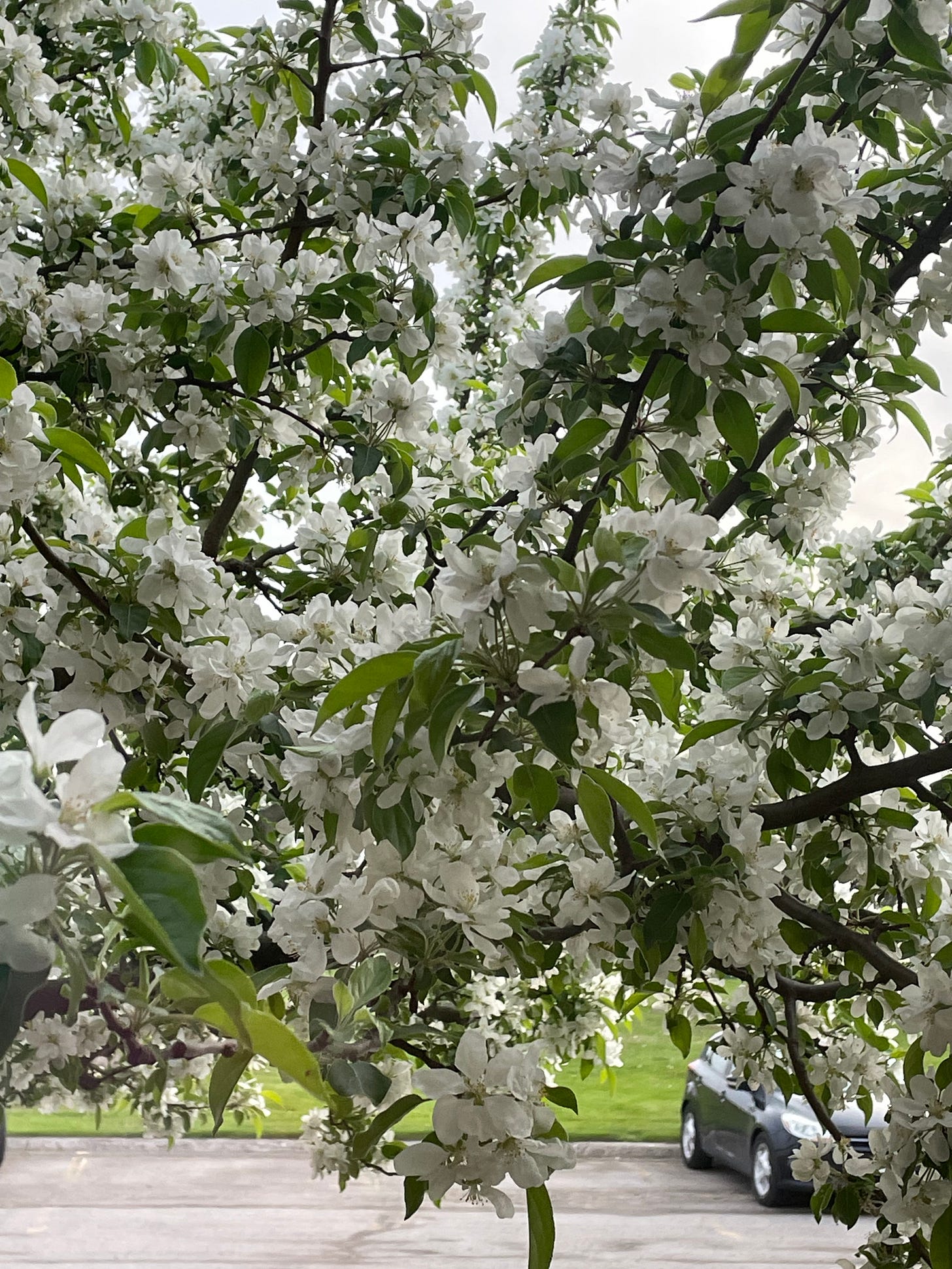How to Have Climate Conversations
Reminded of the importance of talking about climate change and our worries about how it will affect our lives, I am offering a previous blog post: a book review of 'Saving Us' by Katharine Hayhoe
Welcome! I am Jessica Hetherington, and this newsletter is about faith and climate action. You can subscribe by clicking here:

Today’s Reflection
Last month, while I was at the celebration of ministries service in which four people were ordained, and one person was admitted, into the United Church of Canada, I had the wonderful opportunity to speak with some of my former congregants from my student ministry placement in 2017-2018. A number of them receive this newsletter. One of them told me that she had been wanting to speak with me about the issue of moving away from fossil fuels. “My pension comes from the oil and gas industry!” she said. Her fear is about what will happen to the pension that she relies on, if we move away from fossil fuels.
This is a legitimate fear, and one that is shared by both retired people who rely on pensions that are invested in the oil and gas industry, and by workers within the oil and gas industry today. I promised her that it was something I was taking seriously, and that I would do some research and come back to the issue.
I am currently doing just that; I am working on a reflection for this newsletter about how we include those who depend upon their retirement income from pensions in the move to a fossil-free economy, a fossil-free world. I hope to have that reflection published in this space in a week or two.
In the meantime, I have been thinking about how helpful that conversation with my former congregant was. She had the opportunity to express her fear and frustration; I had the opportunity to listen and pay attention to the real concerns facing people right now. It reminded me of the book by Katharine Hayhoe, Saving Us, in which she argues that the most effective thing that individuals can do in response to the climate crisis is to talk about it.
With that in mind, and while I continue to do my research and reflection on our pensions and how to move forward, I am offering here a review I wrote of Saving Us in June 2022 on my blog. It can be helpful to be reminded of how we can go about having climate conversations in a way that is helpful and empowering. I’d love to hear about the climate conversations you have been having in this time of climate emergency.
Book Review of Saving Us by Katharine Hayhoe
I first learned of Katharine Hayhoe and her book, Saving Us: A Climate Scientist’s Case for Hope and Healing in a Divided World[1] when she was interviewed by Nora McInerny on the podcast “Terrible, Thanks for Asking”. The host admitted that she had been getting a lot of requests for an episode about the ecological crisis, but that she had been avoiding it. Any time that she thought about the climate crisis, she admitted, she felt a deep sense of anxiety, and so she simply tried to avoid thinking about it.[2]
Yet, when she read this book, Saving Us, and then interviewed Dr. Hayhoe, she came away with a strong feeling of hope. It is the hope that is named in the subtitle of the book, and is the kind of hope that I have already written about in this blog. Nora says, “Katharine’s energy, her passion, it is so contagious…and you will leave this episode not just feeling better about where we’re going, but aware of how to bring more people along. Even the uncle who thinks it’s all a hoax.”
When I heard this, and then listened to Hayhoe, I knew I needed to read the book, which was released in October 2021. Hayhoe, a climate scientist who has worked on many of the major international reports that have been released on global warming, has written a timely book during the height of climate change disasters and a pandemic that has had the whole world on edge. How could she possibly offer realistic, concrete hope in such a time as this?
Keep reading with a 7-day free trial
Subscribe to Faith. Climate Crisis. Action. to keep reading this post and get 7 days of free access to the full post archives.





